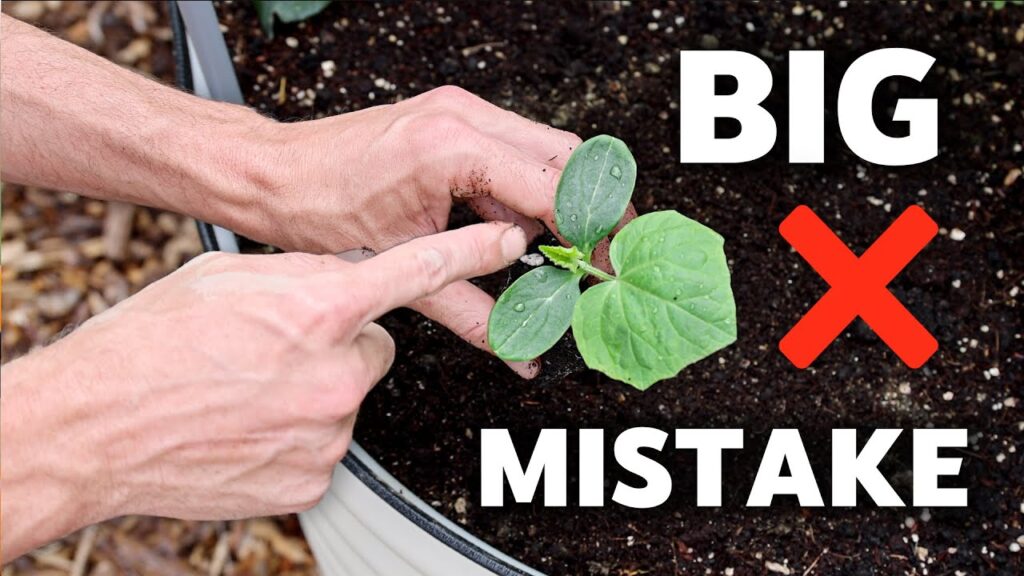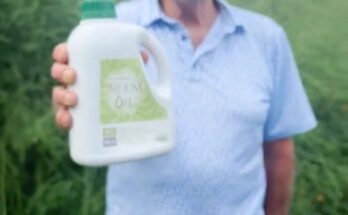I Wish I Knew THIS Before Growing Cucumbers
Cucumbers are one of the most popular and rewarding vegetables to grow in a home garden. They’re crisp, refreshing, and perfect for salads, pickles, or just snacking straight from the vine. But what many new gardeners, including myself, don’t realize is that cucumbers can be deceptively tricky. I wish I had known several key things before planting my first cucumber seeds — it would’ve saved me a lot of frustration, wasted effort, and underwhelming harvests.
1. Cucumbers Are Thirsty and Hungry
One of the biggest mistakes I made was underestimating how much water and nutrients cucumbers need. These plants grow fast and produce heavily, which means they need consistent moisture and rich soil. I initially planted mine in sandy soil and watered only when the leaves drooped — a rookie error. The result? Bitter, misshapen cucumbers and yellowing leaves.
What I wish I knew: Cucumbers thrive in well-draining, compost-rich soil and need deep watering at least 2–3 times a week, especially during hot weather. A layer of mulch helps keep the soil cool and retain moisture. Regular feeding with balanced fertilizer every 2–3 weeks boosts productivity.
2. Trellising Makes a World of Difference
I planted my cucumbers to sprawl along the ground, thinking that was the natural way. But the result was a tangled mess of vines, hidden fruit, and slug damage. Trellising didn’t just look neater — it turned out to be a game-changer.
What I wish I knew: Growing cucumbers vertically improves air circulation, reduces disease, saves space, and makes harvesting easier. Whether you use a fence, netting, or an A-frame trellis, vertical support produces cleaner, straighter cucumbers.
3. Pollination Isn’t Automatic
My first few cucumber flowers bloomed beautifully… and then fell off. No fruit. I was confused until I learned about the importance of pollination. Bees and other insects are essential for transferring pollen from male to female flowers. Without them, no cucumbers.
What I wish I knew: If you’re not seeing bees in your garden, you might need to hand-pollinate using a small brush or cotton swab. It takes only a few seconds per flower, and it can dramatically improve fruit set. Also, avoid spraying pesticides during flowering, as they deter or kill pollinators.
4. Pests and Diseases Love Cucumbers
Cucumber beetles, powdery mildew, aphids — cucumbers attract them all. I thought I could get by with minimal pest control, but by mid-season, my plants were a mess. The leaves were mottled, fruits were scarred, and growth was stunted.
What I wish I knew: Preventative care matters. Use floating row covers early in the season, space plants properly for airflow, and rotate crops yearly. Neem oil or insecticidal soap can help if used early and consistently. Healthy plants resist disease better, so don’t let them become stressed.
5. Harvesting at the Right Time Matters
Lastly, I waited too long to harvest my cucumbers, thinking bigger was better. The truth? Overripe cucumbers are bitter and full of hard seeds.
What I wish I knew: Cucumbers are best harvested when they’re firm, green, and about 6–8 inches long (depending on the variety). Pick them often to encourage continuous production.
In short, cucumbers are rewarding but demanding. With the right care, they can be the highlight of your summer garden — but only if you know what they really need.




